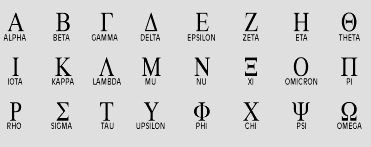
Islam, the Messiah in Christianity is the Son of God.The Greek language is one of the most ancient languages and one that has taken many centuries to develop into its present-day form. However, unlike the concept of the Messiah in Judaism and The concept of the Messiah in Christianity originated from the Messiah in Judaism. Translating the Hebrew word of the same meaning. In Christianity, “the Messiah” is called “the Christ” (from Greek: χριστός, Khristós) "Jesus the Messiah"), does not occur in the Tanakh. The specific expression, "Yeshua HaMashiach" (lit. The Hebrew word for “Messiah” (Mashiach or Mashiah 1Sam 24:6.10) has the numerical value 358 and “The Mashiach” (HaMashiach Lev 4:5,16 6:22) 363.

Is the same name only in different languages. The name JESUS is thus nothing but the Greek or English equivalent of the Hebrew Yehoshua and/or the short version Joshua.

Which is also documented in numerous inscriptions. (NV 386), which we find in the books of the chronicles, as well as Ezra and Nehemiah, was usually used. But after the Babylonian exile, the short form of Yeshua In the first books of the OT, mostly one of the two long versions Yehoshua (mostly NV 391 and rarely NV 397) was needed. The Hebrew name Yeshua comes in 3 variations with 3 numeric values. However, this name is not an original Greek name, but derives from the The Greek name Iesous (Ιησούς = Jesus) has the numerical value 888. Time. The text is read from left to right: Person, and at the same time he was the savior of humanity, therefore he is above the 777 (the creation). His name stands symbolicallyĪbove all other names by the 888, because he not only symbolizes eternity, but also love, salvation, victory, peace and harmony for all In the Greek language, the name Jesus has the numeric value of 888. Numerical value the name of the Messiah would have. Thus there was a prophetic indication in the OT as to what We-yoledet ben”) together with the word “Yahweh" (YHWH), gives the sum 888. Even the unabridged word sequence of Isaiah 7:14 “the virgin shall became pregnant and bear a son” (“ha-almah ha-rah Malachi 3:6 shows that in the sentence "I, the LORD, do not change" the The “God Yahweh” ("Jahweh Elohim" Gen 2:4,5,7,8,9,15) is the “God of Abraham, God of Isaac, God of Jacob” (“Elohé Abraham, Elohé Isaak, Elohé Jacob” Exģ:6), all words added together give the number 888. In Psalm 19:1 the words "the heavens declare the glory of God" add up to the numberĨ88, because the heavens indeed declare the glory of Jesus Christ. The apostle Paul refers specifically to this event when Moses went through the sea and makes it clear that the spiritual rock that followed theįathers was Jesus Christ (1Cor 10:1-5). Name "Moses" and "I am who I am" also give the 888, indicating that Jesus (the Word of God before becoming man) was the one who through Mosesįreed the people of Israel from the sin of Egypt. God" (El Shadday Gen 17:1 28:3 35:11) and his own definition of "I am who I am" (“eh-yeh asher eh-yeh” Gen 3:14) give the value 888. The 888 is by no means just referring to the NT because there were numerous references to Jesus in the OT. R*200 + W*6 + Sh*300 + L*30 + M*40) and the ordinal value 82 (J*10 + R*20 + W*6 + Sh*21 + L*12 + M*13). If the numerical values of all 22 letters of the Hebrew alphabet are added together, the total value is 1495. But Jerusalem has the numerical value 586 (J*10 + Example: YHWH (Y*10 + H*5 + W*6 + H*5, ie 10-5-6-5) has the same number and ordinal 26, since the letters used do not have the 10th letter of the alphabet beyond which the numbers rise. Single word automatically has a specific number and ordinal value. Ordinal values indicate the position of letters within the alphabet. Thus, each Hebrew and Greek letter and each word has a numerical and ordinal value. Therefore, numeric values have been assigned to all letters. In addition to the numerical values, the ordinal The Old Hebrew and Old Greek languages had no special numbers. The 7 is a sacred number and 7x7= 49 means completeness andĬompletion. The whole Bible (OT and NT) was written on 22+ 27= 49 (7x7) scrolls (see Structure of The Old Hebrew alphabet has 22 letters and the ancient Greek alphabet 27 letters.


 0 kommentar(er)
0 kommentar(er)
